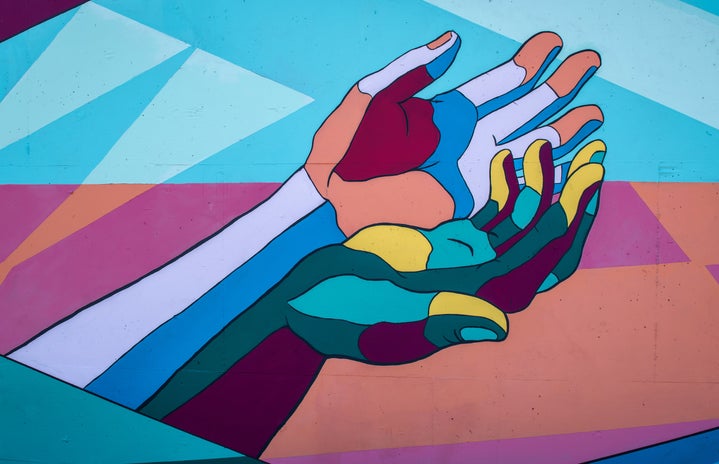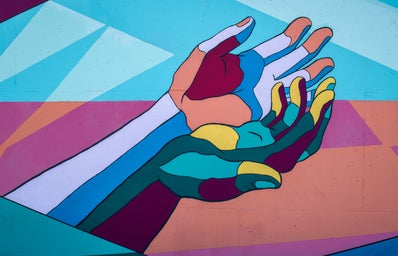Star Trek: Discovery, the latest instalment to the fifty-year-old franchise (which I will gracefully be abbreviating to Disco, not STD as so many have chosen to do), is currently airing its third season and truly breaching the final frontier like never before— I’m loving it.
Star Trek has been boldly going since its creation in 1966 by pioneer Gene Rodenberry. I’m pretty sure it’s a franchise that will never die (which is great for avid fans like myself.) Throughout its long and impressive history, the crews of the various starships and space stations have taken part in some pretty revolutionary and iconic stuff.
Star Trek is a cultural phenomenon through and through. Fun fact, one theory suggests that the bad writing and subsequent casting of Jeri Ryan in Star Trek: Voyager eventually led to the election of Obama in 2008 (but of course take that with a pinch of salt.)
It first shocked viewers back in the sixties by casting a black woman as part of the main crew and then again by having her take part in the first interracial kiss to grace our screens. But despite that happening over half a century ago, it’s still shocking audiences today by, funnily enough, casting a black woman as the protagonist and representing a diverse array of sexualities and relationships.
Throughout the decades, Star Trek has revolutionised sci-fi by tackling serious issues such as racism, gender and sexuality, sexism, ableism etc. way ahead of its time. Over the various incarnations of the series, we’ve had African American Captains, Female Captains, Native American Officers, men in miniskirts and countless other examples of celebrated diversity.
The crew of a Starfleet ship has always been a cosmopolitan hotpot of ethnic backgrounds and sexual identities (though it could be argued it’s still only tokenism for the most part.)
When the trailer for Disco first hit three years ago, Trekkies everywhere held their breath— there hadn’t been a new series of Star Trek for over a decade (the last one aired when I was five.) I was more than a little excited. They were shaking up the format, reviewing the formula and promising a very exciting, twenty-first-century-appropriate addition to the beloved franchise.
I was especially looking forward to the prospect of two developed, complex female characters at the forefront of this new series— I love you Patrick Stewart, but you’re still an old white guy. Other fans, however, were not so keen— apparently having a female protagonist called Michael with short hair was perhaps a touch too *progressive* for some.
But as I said, I love it— so why are the fanboys so annoyed? And I say boys because I never see many women complaining about SJW pandering…
Why do an Asian Captain and an African American first officer upset people so much? Despite the efforts to forefront diversity, the crew is still mostly white, so why do white men feel so attacked?
I’ve seen the show labelled ‘woke for woke’s sake’, misandrist, political correctness gone mad (you can look at the one-star reviews if you’re feeling too calm and collected for some reason.) The only conclusion I can come up with is that discrimination is still inherently running rampant throughout even the most progressive of shows. As disappointing as it sounds, it’s the unavoidable truth.
This is the upsetting fact that led me to realise the importance of annoying the white man.
As well as receiving praise from MLK jr. for her important part of the Civil Rights movement through the show, Nichelle Nickols (Uhura in the original Star Trek) inspired thousands of black girls across the world. One of those little girls was Whoopi Goldberg (who went on to play Guinan in the series) and she has repeatedly cited Star Trek as the reason she became an actress. Imagine a Hollywood without Whoopi!
Even from the very beginning, Star Trek was showing the world that diversity and acceptance was the future.
This is a classic tale of how representation matters, something that Roddenberry knew and the franchise has continued in his legacy. Remember how people hated the female Ghostbusters? Wonder Woman? Captain Marvel? Remember the uproar about black Hermione? Black Ariel? Black MJ?
Regardless of the quality or popularity of these ethnic and female-led stories, what matters is that they did hit the screens, the theatres and red carpets.
It doesn’t even matter if you, reading this, don’t like Star Trek— the simple presence of these stories, of marginalised voices, is so much more important than any backlash they then receive. Hate can’t stop these stories being told forever.
So, in the end haters gonna hate and I’m just gonna shake. Shake popcorn into my mouth as I enjoy yet another new episode of Disco, in all its beautiful diversity.


